Smalgui asked me to make a thread about my little collection of books, so i guess, here i am
A bit more about d'ingo d'anabas and the books -
Edit: Pardon my english, it is full of funny issues, but it is the only language most of you know.
since i was a little dingo i always liked to do different things than my pals (which i dont like by the way) and this more or less lead me to do solo activities in my free time. Note that i was born in a time where you had a nice pc if had 16mb of ram, to tell you. My parents always incitated me to read, and so most of my time was spent doing so. Very early i went to book shops with my parents and i watched antique books like candies. Back in the days the prices were so high for some of them than you could only look at them but not even think about buying. I really started to buy on my own around 16, but despite it being "old books" (19th century), it was more to buy books, than to collect anything interesting.
People outside France often think that anything old regarding books is rare and expensive, which is not. Since the invention of the printing press by Guthember in 1455 in Mayence, billions of books were produced, and with the rapid spread of mechanical rotary (rothary? hehe) press in the early 19th century, they were produced in mass. Mostly law and as usual, religious books.
Being a full grown man its only after my studies that i really started to enter the rich world of book collectors, regarding very rare and expensive books. My education naturally lead me to collect law, architecture, history and voyages books. More recently since i moved to Japan, i got interested in the collection of Edo times books. We will come back to this later.
I dont have a "big collection", so to speak, i would say i have around 2000 books, which is lower than the average book collector in Europe (i know some people who have more than 10 000 of them). Tho the difference is i mostly read them. Reading old books isnt difficult, we speak about 15 to 19th century english/french for most of them. Some grammar or words might not exists anymore but in the vast majority, its still readable. Anything before the 1500s era is not reable, because its either mostly latin, or medieval type language. Some would have to study a lot to understand it.
Smol de Gui asked me how do i find books - So it started the classic way, you go to your local library and you find whatever you like, as long as the prices allow it. I was quickly limited in my choices and at some point i did buy all i wanted. Spending time in a place with books allow you to tie relations with professionals librarians and to some extend, customers. that is a second way to get books that are usually, not put on the market. Another imprtant, and now the main way to get books, is doing auctions. The rise of internet allowed me to finally buy from all over the world, and at a much less expensive price than a librarian. Sometimes the books can be 10x cheaper on internet.
Today in my collection i mostly have history books, voyages ones and archeology/architecture ones.
i am particulary interested in Asia and Oceania travels also by Roman history. I dont like religion much so i have only very few of them, mostly bought for the visual of the books. In facts most books from the 15th century are religion.
What do i have in my collection? I would say 2% of the books are from the 1460's to 1500. It is called Incunable, it is very rare and also probably the most expensive part of one's man collection. If you dont know what it is, think about rubricated books with gothic letters, that movies often (wrongly) show you in esoterics movies. (see picture). 75% of theses books are in latin, then german, italian and french. Not many in english. Note that theses books do not exists in america, the first printing press imported by the migrants came in the middle of the 17th century. So this market is extremly rare and expensive in north american and all of them existsing were imported at some point.
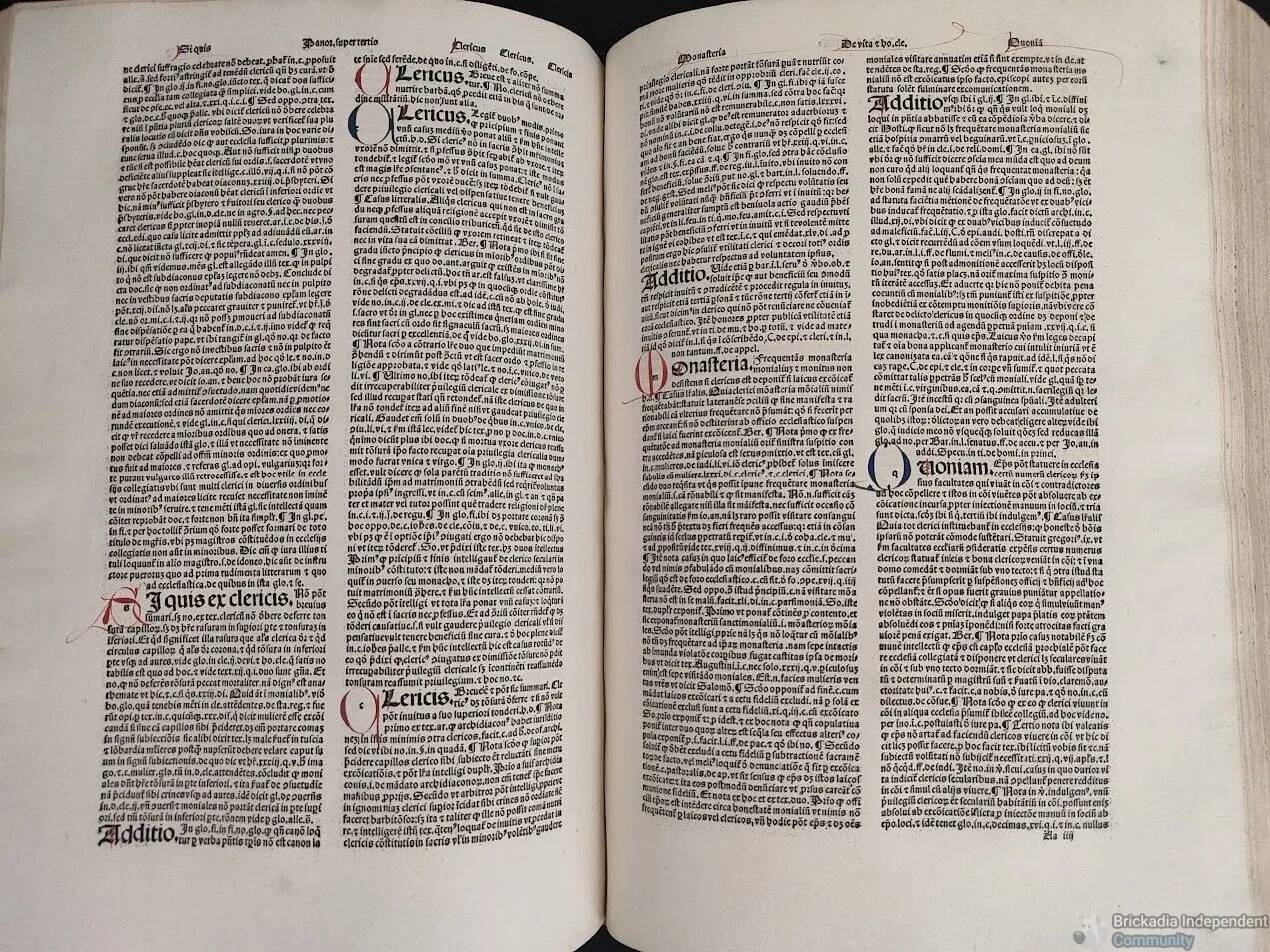
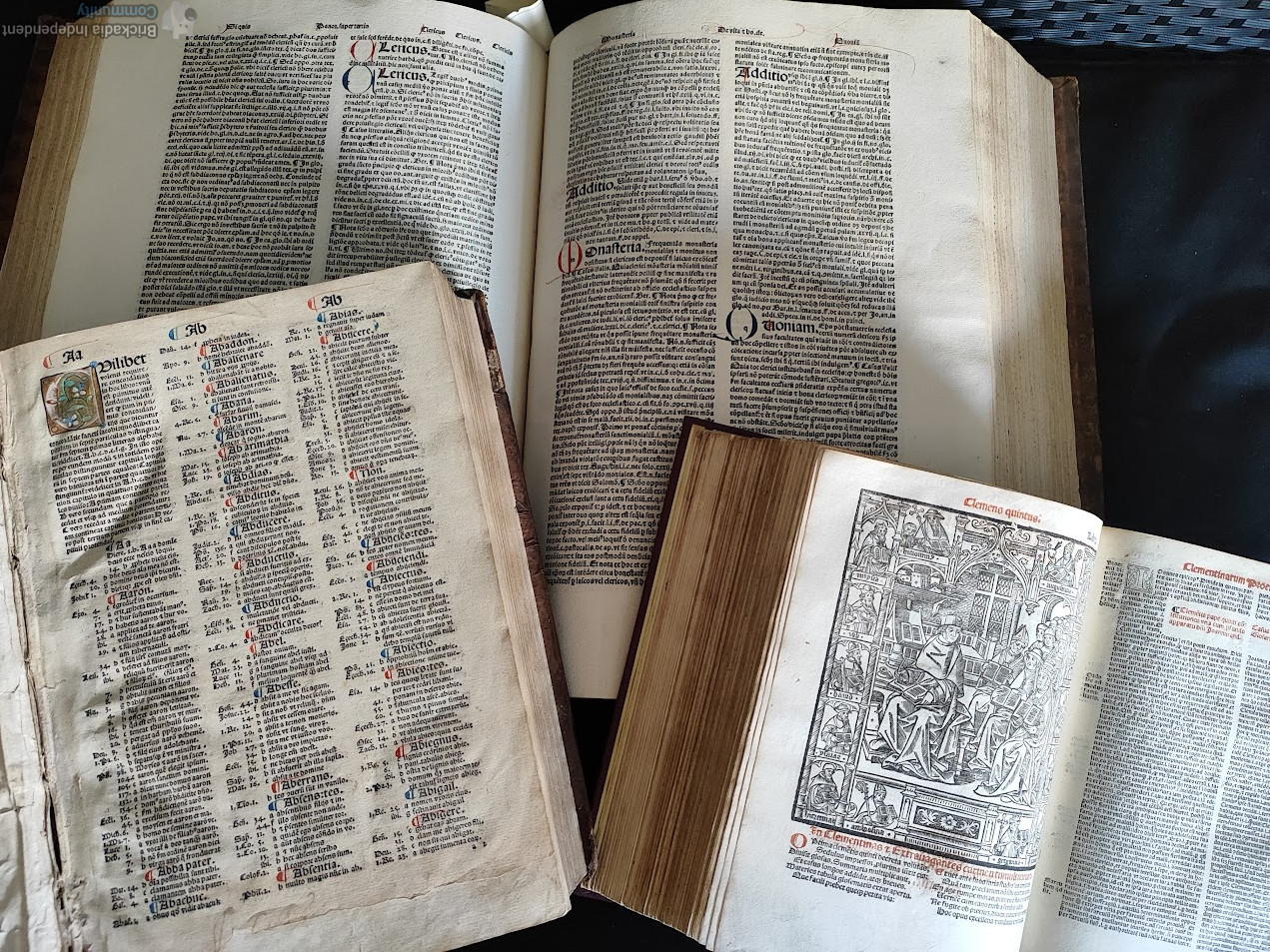
(Incunables and post - Incunables, from 1494 to 1506)
Then come the XVI th century, it represent around 20% of what i have.It mostly consist in law (canonical law, church if you want) and some history books, the first more or less interesting books to me, tho history wasnt some important subject back in the time in education of nobles (very few people knew how to read). The lack of ressouces by the writers of the time mean lot of errors and missing parts. The renaissance times just started and they did more focus on antique culture rediscovery.
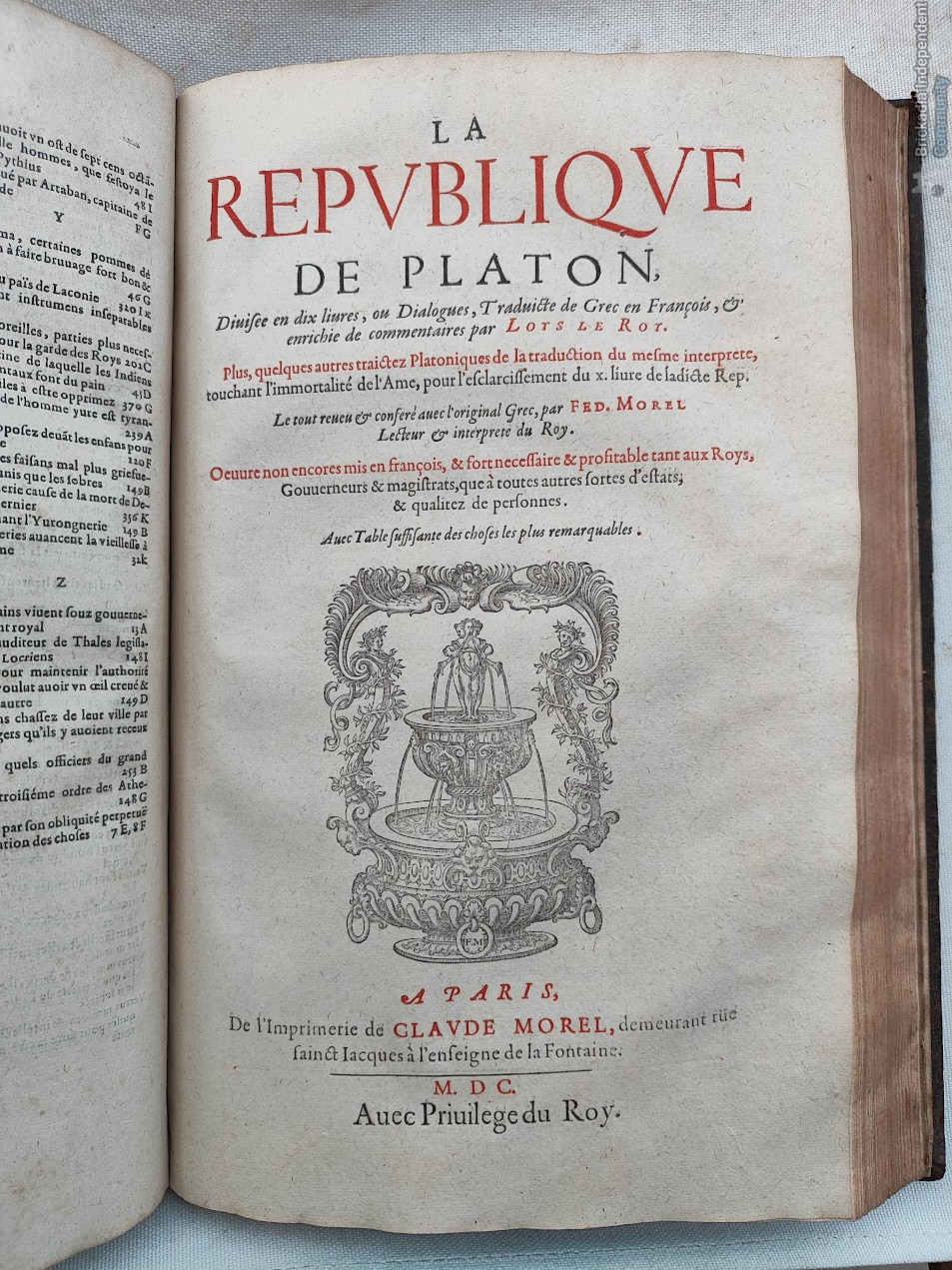
(The republic of plato)
Then XVII th century, i have around 50% my collection with this. The most interesting times to me, i call it the era of travels. Regarding the developpment of great empires (Netherlands, Portugal, Spain and England), leaders decided to send what we coudl call the pre scientifics expeditions around the world, to know more about it of course, but also to claim lands and spread the catholic religion (with its funny consequences). Complete voyages books are very rare, bevause people liked to removed the engraved plates to frame them. It was also reserved to people who could pay and had time to read other than religion. So mostly noble people or the new bourgoisie. Buying them is only possible at auctions, because it would cost much, much higer in a library. Cound between 3000 to 15000$ for some large and complete tome.
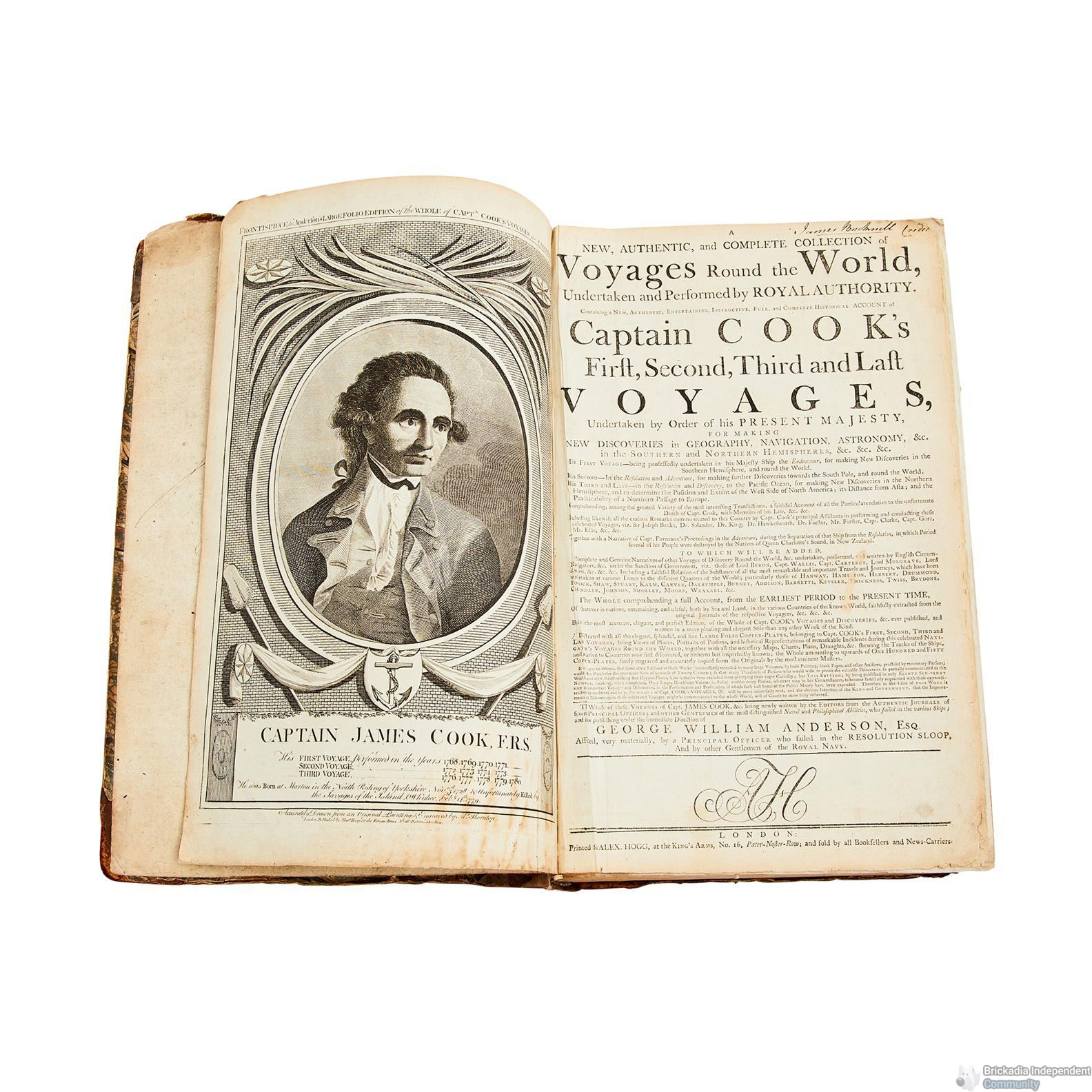
(Very rare edition large format of the James Cook's travels, with many plates, 1784)
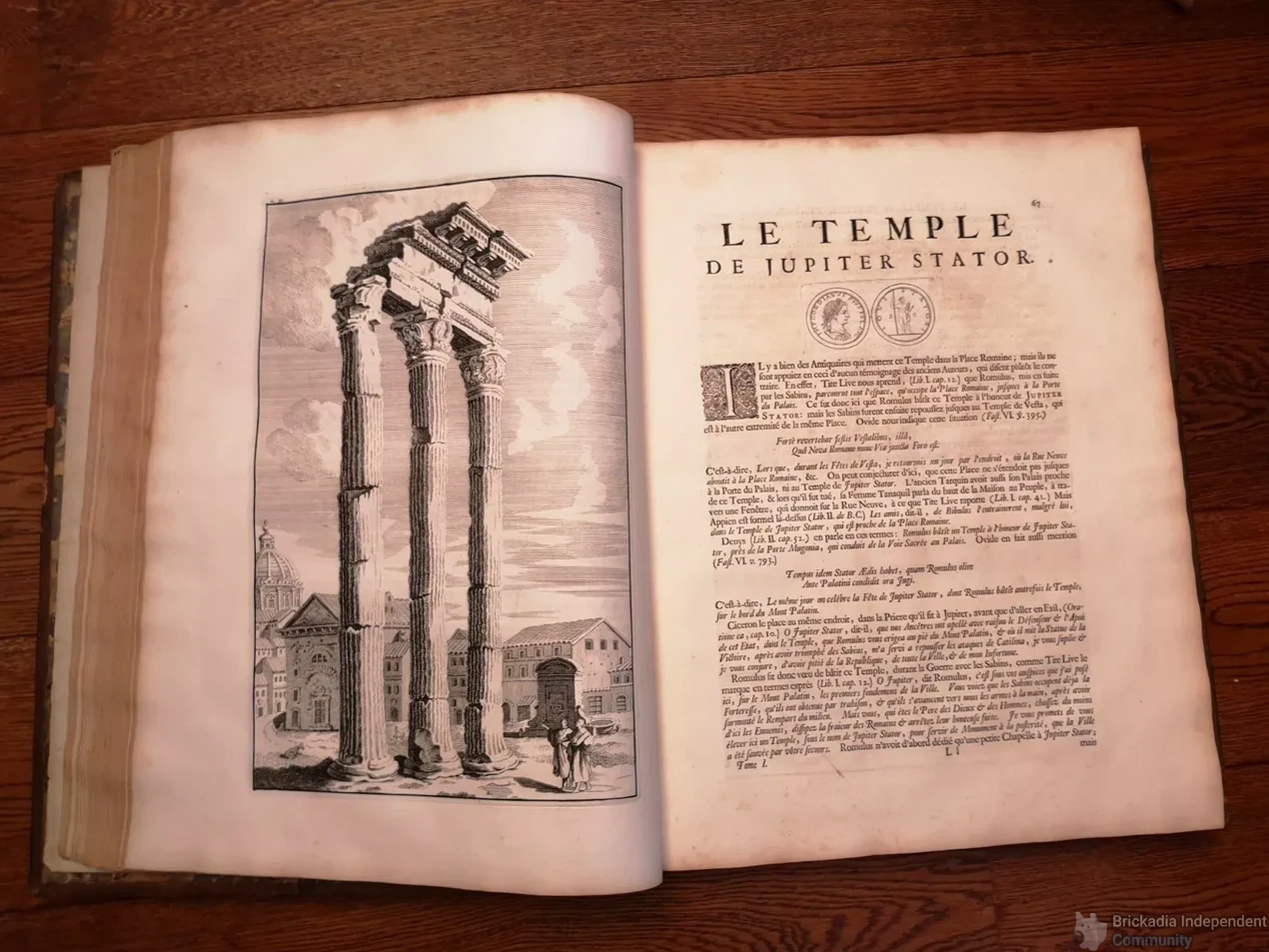
(The remaining ruins of Roman Empire, 1778, this book is around 1 meter tall lol)
This era is also the era of the Enlighments, which mean, of course, the Diderot's Encyclopedia (1759). It is probably the most iconic book one could buy, because it is a sum of all the existing knowledge ever made in a scientific way. I searched a complete copy for 10 years before getting my hands on one, and since its in french, its readable. There is, still today, extreme quality articles, and also a lot of illustrations and engraved plates. The most complete copy, the Paris's edition, has 35 volumes. This specific encyclopedia has a long story, was censored, and despite that, they printed more or less 4 million copies. Yeah.
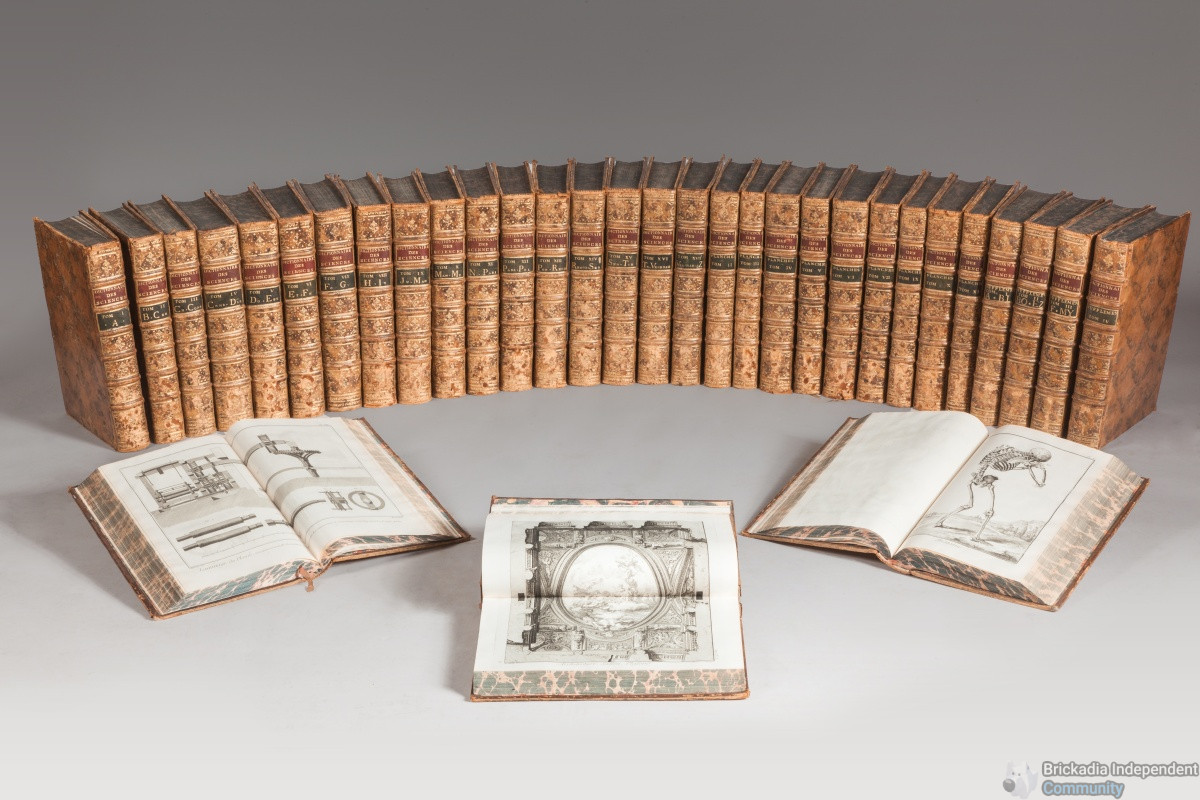
(The Diderot's Encyclopedia, symbol of the Enlightments and philosphy about human's rights)
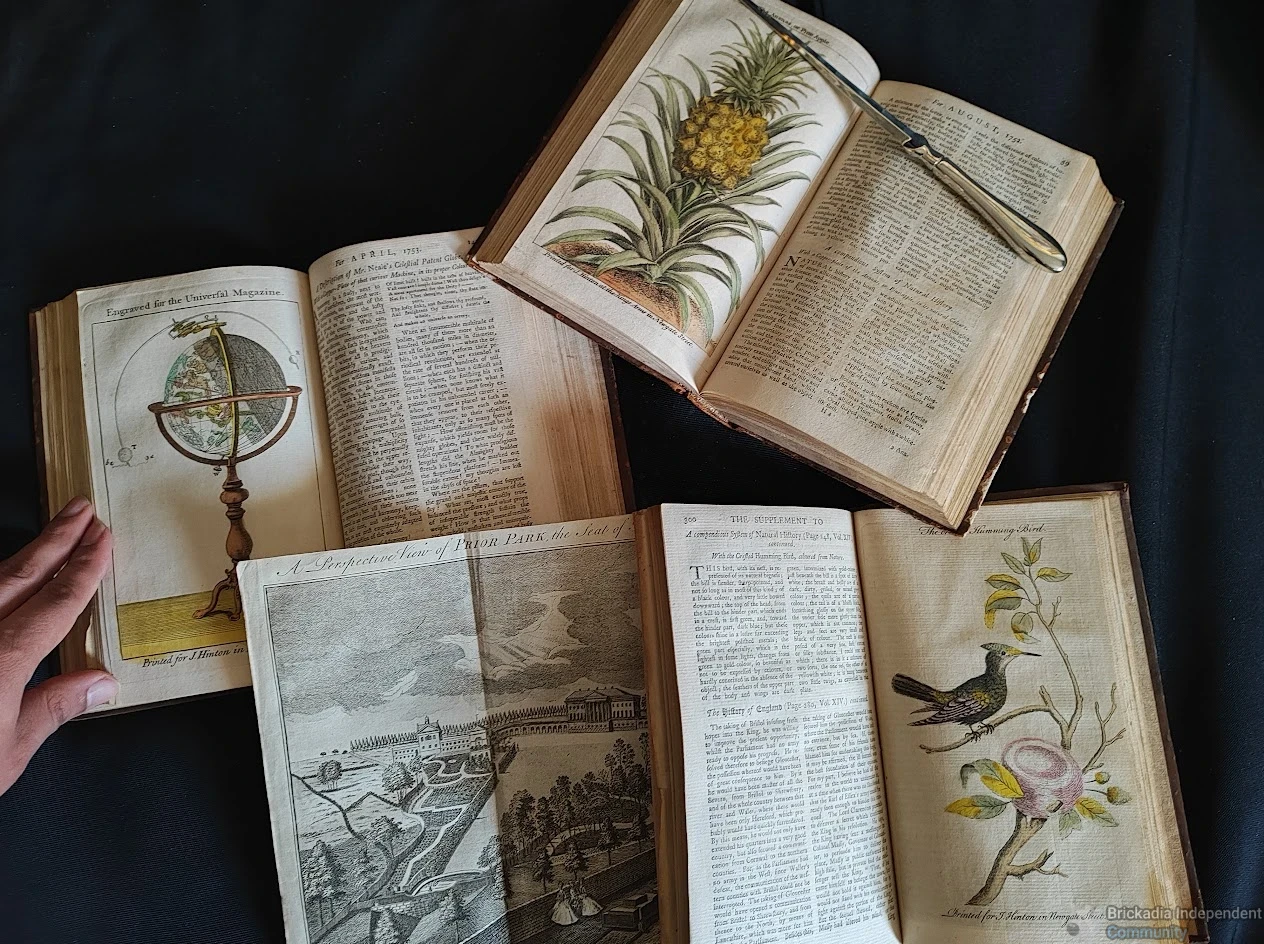
(The Magazine of Knowledge and Pleasure, one of the early try at editing a newpaper, around 1750)
A lot of roman history books, with finally the classic authors translated, went on the market, and depenfing who translated and how, some books are very interesting.
The XIX th century, is the era of romantic books. By this i dont mean stuff regarding relationships, but its more a way of life and thinking. The napoleonic wars did bring us the transcription of the hieroglyph in the first part of this century. If you are interested in ancient egypt, you should get a reprint of the "Travels in Egypts by Napoelon". Getting a firsr print cost the price of a house 🙂. There is also a vast amount of low quality printing, very condensed books (very little letters, something like size 6, 3mm). Theses were printed to help to spread education. The creation of the republican system (noting related to the shitty usa one) and the new policies that emerged from it were all from a more global idea of progress (Electricity, train, gas, education, easier ways to travels... The industrial era). I have a lot of them, most are cheap and the way its written please me. You also have more books about travels with plates, some could be expensive but most of them are affordable to common people.
I have some books from the XX th century, also also a full collection of science fiction books, but it doesnt enter in this topic.
I will make more articles about more specific times if people ask me later.
I hope this little article will please Mr.Petit and everyone who like to talk about books.
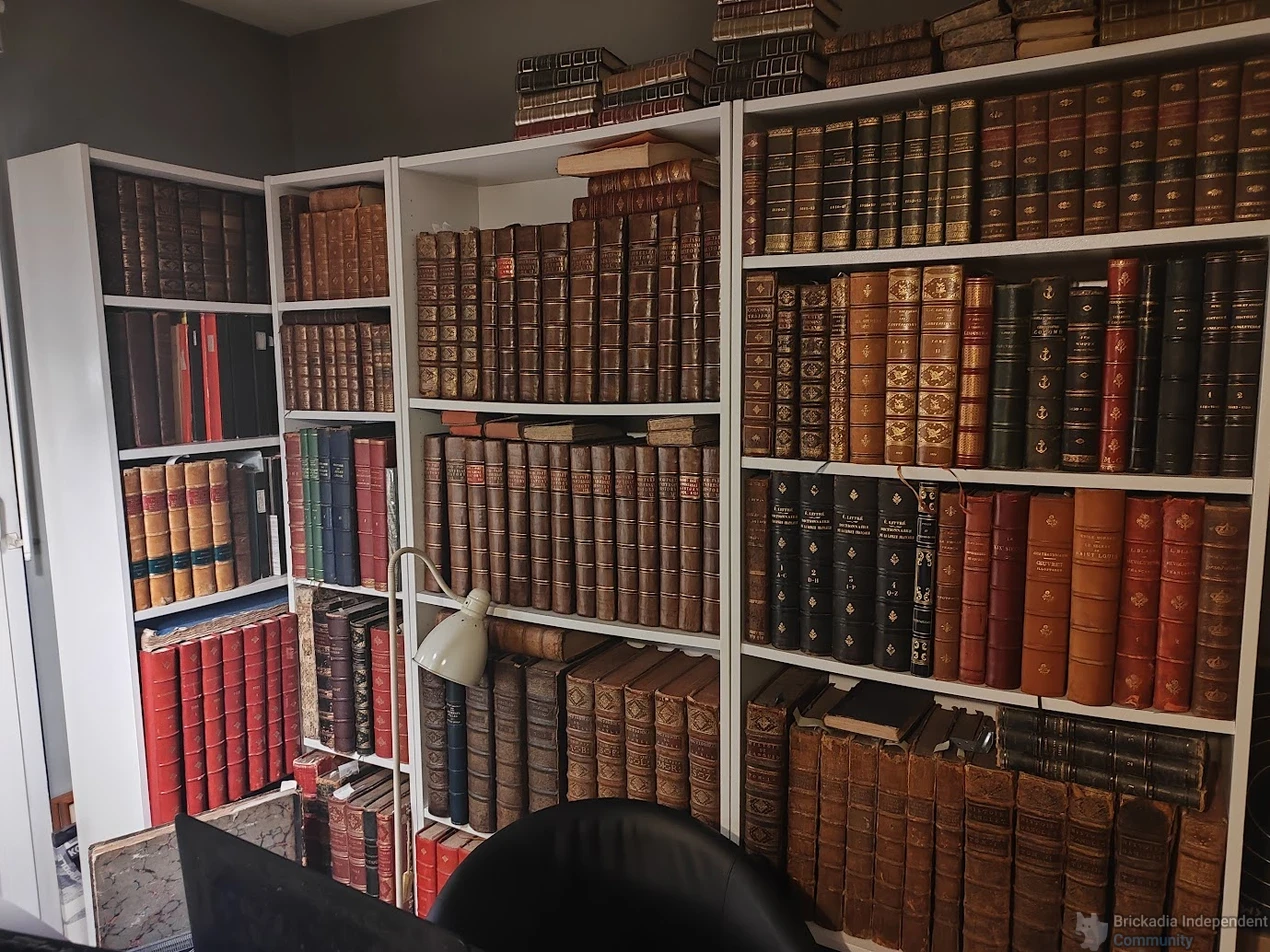
(Le library du dingo, at least 10% of it, 2025)